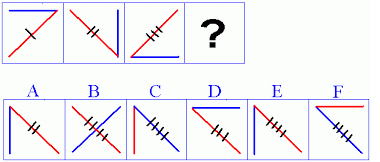
Testing Intelligence
For more than a century the IQ test has been the crowning jewel in the quest to measure an individual’s intelligence, but recent research suggests that such tests should not be held in such high esteem.
To investigate the value of the IQ test, researchers carried out a project on behalf of the Daily Telegraph and New Scientist to ask more than 100,000 participants to complete 12 assessments that tested their abilities in; planning, reasoning, memory and attention. They discovered that rather than intelligence being reduced to a single factor, the relative success achieved in the assessment was influenced by three distinct elements - short-term memory, reasoning, and verbal ability.
Possibly most significant of all, they also found that just because you were good at one of these factors does not mean you are going to be good at either of the others.
Criticisms of IQ testing
These findings will warmly welcomed by a large body of scientists who have long claimed that traditional IQ tests are too simplistic. They believe the nature of intelligence is too complex to reduce to a single number produced as the result of a single exam.
There is much evidence that while IQ is a reasonably good predictor of academic success at school particularly within the sciences it is of much less value for indicating any achievements that may be made in the arts and creative subjects.
Perhaps these are perfectly reasonable criticisms. After all the current leading theories of intelligence have also moved away from a single General Intelligence factor (G), towards ideas of multiple intelligence If we accept that they do not measure the totality of intelligence, do traditional IQ test still have a place?
What do IQ tests show?
There is a large body of evidence that shows whatever an IQ test is measuring, it is a good predictor of a wide range of outcomes for our lives. For example IQ tests predict job performance in almost every kind of work studies to date.
 The accuracy of the predictions understandably varies with the type of job, less in manual based industries and much stronger for professional careers, but in all cases a higher IQ suggests better job performance. This is suggested to be related to the ability to learn job-relevant skills and knowledge at a faster rate.
The accuracy of the predictions understandably varies with the type of job, less in manual based industries and much stronger for professional careers, but in all cases a higher IQ suggests better job performance. This is suggested to be related to the ability to learn job-relevant skills and knowledge at a faster rate.
Charles Murray, co-author of The Bell Curve, also found that IQ measures are a good indicator of future incomes, and that this effect is independent of environmental considerations such as family background.
In addition to predicting higher incomes and better performance at work, other research has shown correlations between IQ and; being less likely to commit certain crimes, to being healthier and less likely to be overweight, and even to living longer.
What does an IQ test measure?
IQ tests do measure certain core components that come under many models of intelligence. In particular an ability to rapidly store, process and retrieve information. Higher IQ scores are very strongly correlated with Working Memory Capacity, which suggests they may be measuring how much information we can hold in our heads and manipulate at one time.
Related to this ability to the capability information in our mind is the ability to identify patterns. This in turn hints at why they might be good predictors of success in the sciences, of mathematical ability and why a musical education appears to have a beneficial effect on IQ.
The key point that all the research agrees on, is that the time of IQ being the single measure of intelligence has passed, and to be useful it must now be considered as part of a wider range of cognitive tests that together can give a more complete picture of the reasoning and problem solving abilities of the human mind.